How To Find Legally Free Camping Sites In The U.S.
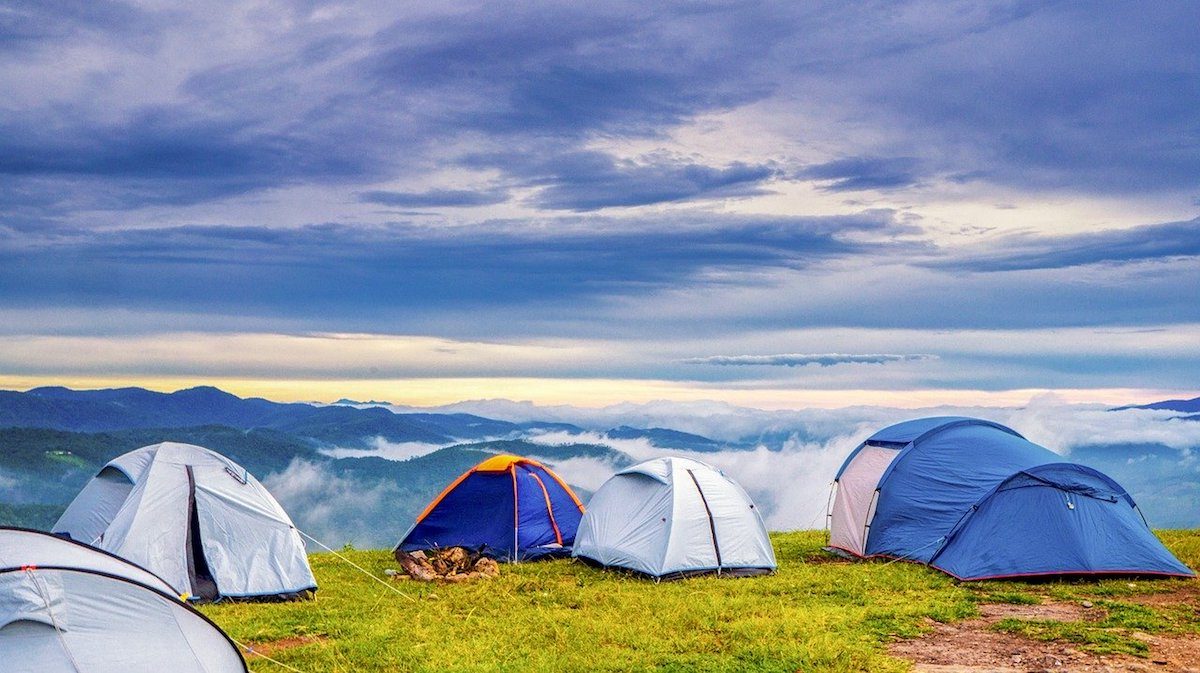
Camping is perhaps one of the most relaxing yet cheapest vacation ideas for you to take a break from the bustling city. Whether it’s wild camping or glamping, there must be something about camping that brings you back to your roots in nature. It’s true that most camping sites in the United States are part of conservation, which means you’ll have to pay a small fee to access the facilities. But is there such a thing as free camping? With the right amount of information and enough sense of responsibility, you can actually camp for free on numerous camp sites in the U.S.
So, if whether if you’re a new RV owner who wants to test out the ride and to camp in the wilderness, here’s exactly what you need to camp legally for free in the United States.
Can You Camp For Free Anywhere In The U.S.?
A good answer to that question is a yes and a no. Technically, you can’t just park your RV or open up your tent in the middle of a park without any permits. However, there are plenty of campsites that are legally free for you to camp. In fact, you can enjoy free camping on 28% of the land in the U.S. depending on the location and the activities you want to do. So, hurray to free camping!
However, before you head to the nearest free camping area, make sure that you do your research. There’s more to learn and prepare before venturing into free camping grounds.
When Is The Peak Season For Free Camping Sites?
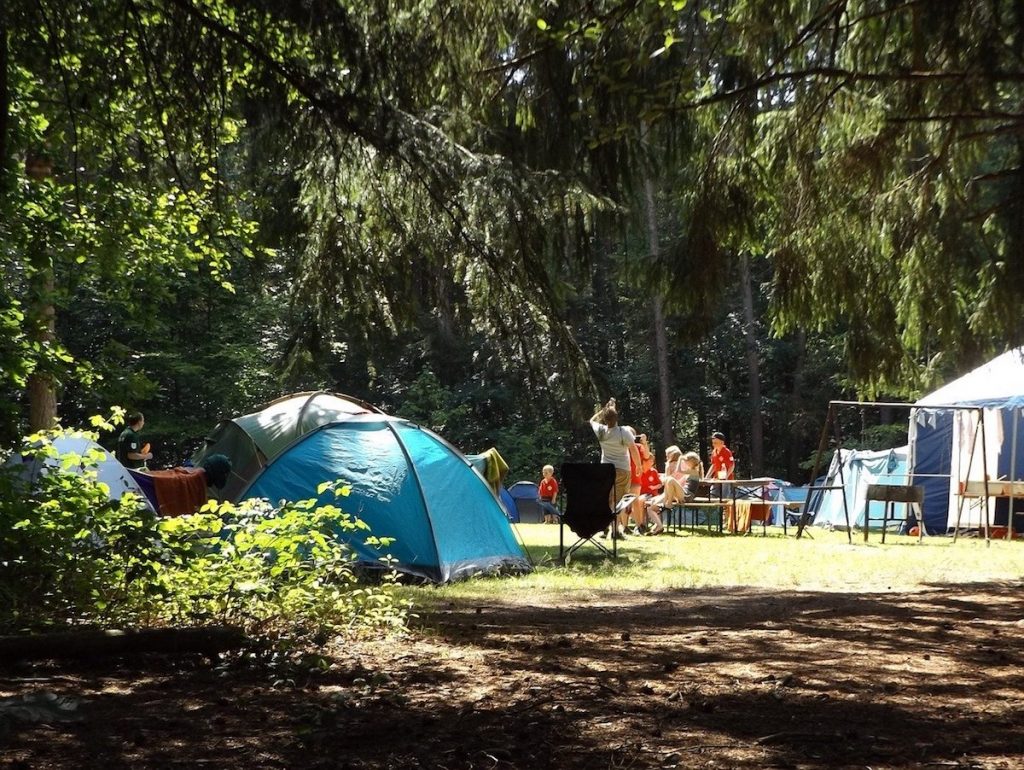
Photo by Brahmsee from Pixabay
Summer is the busiest season for free camping sites in the U.S. These months have warm and dry weather, which provides campers with the better ground to pitch their tents on. The downside, however, is that free camping sites can be crowded during summer.
Late spring to early fall is also a popular time for camping. With temperate weather, it’s perfect for family camping.
Do I Need To Make Booking In Advance For These Free Campsites?
You don’t necessarily need to call a campsite to reserve a free spot. However, if you’re planning on a road trip to go with your camping, calling to check the campground can be helpful. The last thing you want is to find out the campgrounds are already packed when you arrived.
Heading out to free campgrounds can mean making preparations and setting expectations. You can call to check if the site is already crowded, as well as ask what you need to bring. It’s also smart to research your camping grounds if they are to your preference, as some camping sites are more suitable for tent camping than RV camping. It’s also good to check if there are available RV dump stations near your free campsite, for your convenience.
Recommended Websites To Find Free Campsites
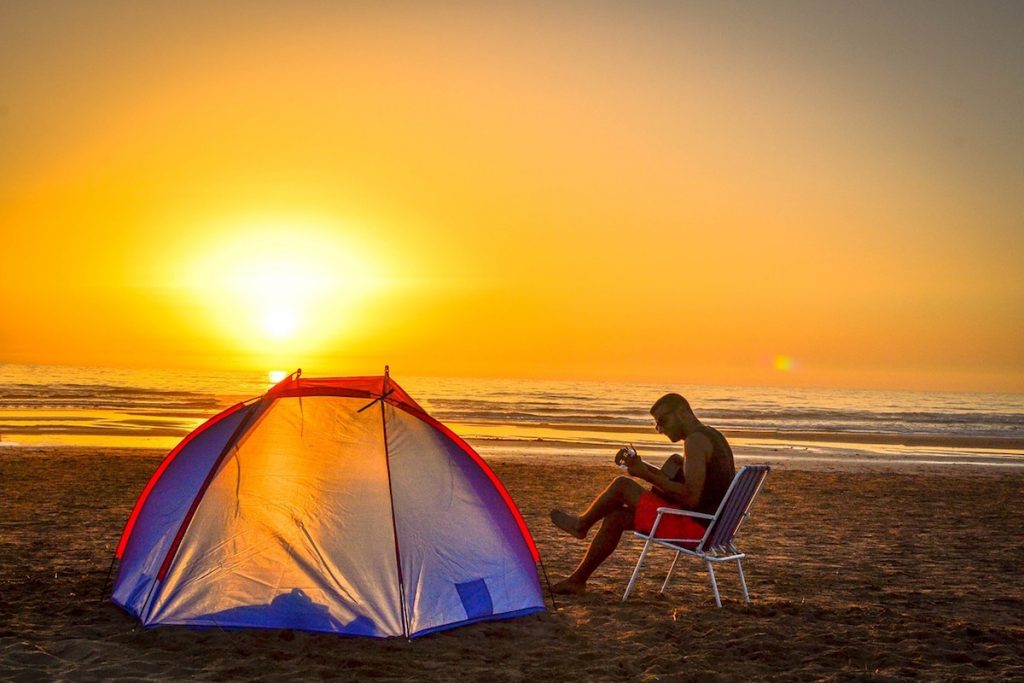
Photo by Yassine_Noamani from Pixabay
If you’re searching for free RV campgrounds or trailer parks, here are the top sites to check:
- Google Earth: This is both a free mobile phone app and a website that is readily available on any device. It’s fairly easy to use and has a comprehensive database of almost all possible campgrounds.
- TentsforTroops.org: If you have a military family member, this is the perfect site to check. Tents for Troops is a pay-it-forward program that offers two free nights for camp and RV sites. The website is easy to navigate and provides a lot of great camping options for families and friends.
- Campendium.com: Another great site to check for free camping spots all over the U.S. is Campendium. It’s easy to navigate and has filters to narrow down your choices. They also feature thumbnail photos that show you what some free camping sites look like. The reviews posted on the website are also very helpful.
- Freecampsites.net: This is a very straightforward website that takes you to RV campgrounds, trailer parks, or parks for free camping. It’s not as informative as the other sites, but it can still be very helpful when searching for free camping sites.
- U.S. Forest Service Website and the National Forest Campground Guide: If you’re keen on camping on national forests, check these free websites. Simply choose the state you prefer and browse among the numerous national forests that interest you.
- iOverlander: This is another free app that has a great list of user-submitted campsites. It also offers traveler-friendly information that can make your deciding process easier.
- Outly: This site shows the boundaries of National Forests, BLM, and state lands. It also shows directions and informs users if the roads leading up to the camping sites are for 2WD or 4WD.
Places To Enjoy Free Camping
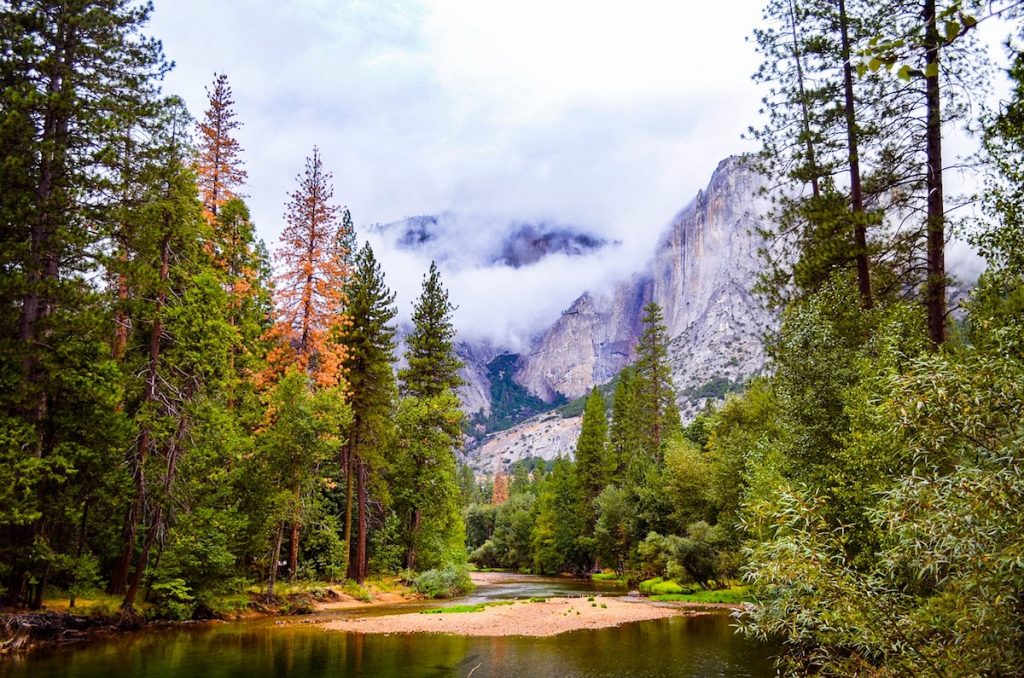
Photo by veenaavinash14 from Pixabay
The following are different land types where free camping is available. Each land is unique, so it’s best to check which one matches your camping preferences the most.
National Forests
Unless it’s otherwise stated, most national forests allow free camping. You can pitch a tent or set up camping chairs outside developed campgrounds and recreation areas. The rules vary for each national forest, so it’s best to check.
If you’ve been dreaming about camping in Yosemite National Park, there are 11 free campsites around the gorgeous national park. Joshua tree camping also doesn’t have to cost you a lot. There are free camping options to the north and south of Joshua Tree National Park.
State Forests
Finding free camping spots in state forests can be hard but not impossible. Many state forests allow free camping as much as national forests do. However, these areas also lack amenities and are often unstaffed. Before you head over, check each state individually to learn of their restrictions on free camping.
Grasslands
The U.S. is home to many national grasslands that offer fantastic camping opportunities. The flat open lands surrounded by sweeping views are quite hard to resist, especially if they’re free. These publicly owned lands also house a diverse ecology, making your free camping all the more worth it.
You can call a ranger or check the U.S. Forest Service website for further inquiries.
BLM (Bureau Of Land Management)
The western part of the U.S. is home to publicly managed lands that allow free camping. Most of the free spots are developed outdoor campgrounds. However, they still offer the same relaxing experience. BLM lands can be quite hard to locate as they’re not marked on Google Maps. You can check BLM’s interactive map or FreeRoam.
Wildlife Management Areas (WMAs)
Wildlife Management Areas are mainly for the conservation of wildlife and local habitats. WMAs are also famous for hunting, fishing, camping, and other recreational activities. It’s best to call first and do your research about needing to secure a permit before camping in the area.
Private Properties
Many local farms allow campers to use their land for a few nights. Even big store parking lots, such as those of Walmart’s, allow overnight free camping.
For RV campgrounds, check out the BoondockersWelcome website. You can find hosts who let RV campers stay on their property for free.
Perks Of Free Camping
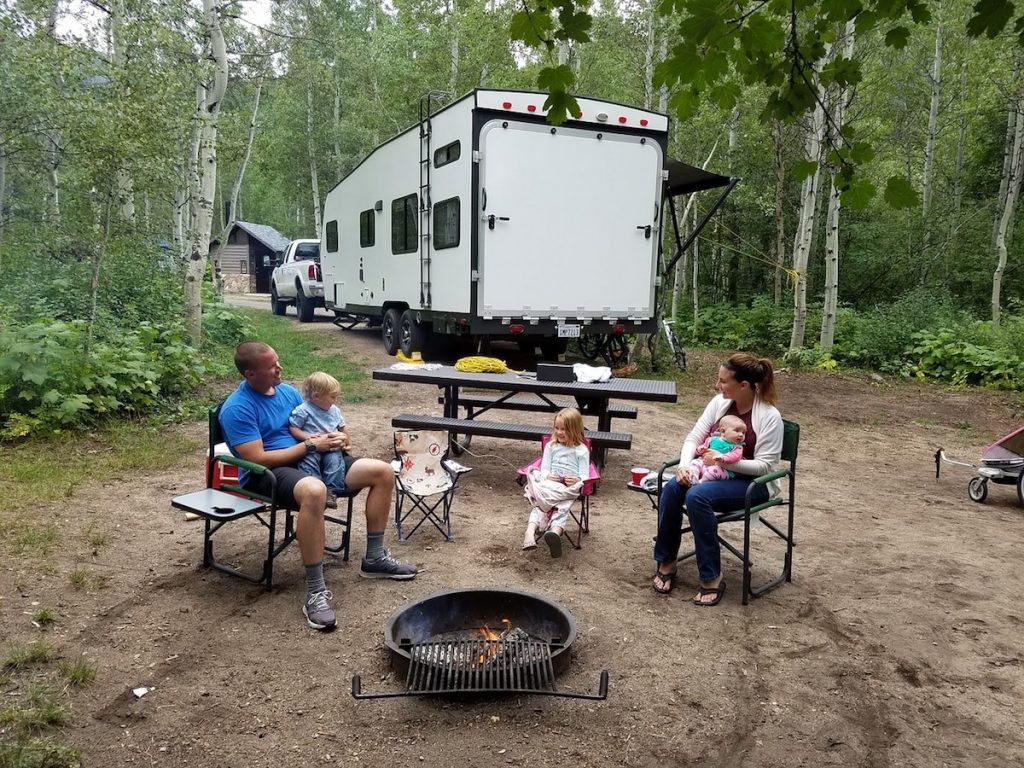
Photo by LizRVS from Pixabay
Aside from the apparent reason that it’s free, there are other benefits of free camping. If you’re planning a weekend trip, free camping is a great way to bring down your overall expenses.
- It’s flexible: Free campgrounds allow you to enjoy dispersed camping and not be tied down to a specific spot. Free campsites also mean you can engage in activities that you think are perfect anytime during your stay.
- Allows for creativity: Aside from flexibility, free camping encourages creativity. Without the amenities and activities that paid campgrounds offer, free camping allows you to think and plan for your own entertainment.
- Offers seclusion and solitude: Most paid campgrounds can mean a pack of other campers with you. Free camping sites are often in remote areas, allowing you to enjoy more privacy and peace of mind.
- Best for last-minute trips: Free camping is an excellent option for spontaneous weekend trips. Unlike paid campgrounds that are fully booked for months ahead, you can often spontaneously find a spot on free campsites. Aside from that, camping on free grounds is much less expensive than camping on paid sites.
Downside of Free Camping
As with everything, there are downsides to free camping. Before you head to the nearest free campsite, here are some of the things you should expect:
- Lack of showers
- No cabins
- No picnic tables
- Inadequate potable water
- No dump facilities
- Lack of fire rings
- Rough roads
- Poor cell service
These are not always the case in some campgrounds, so it’s still best to check.
The Hidden Cost of Free Camping
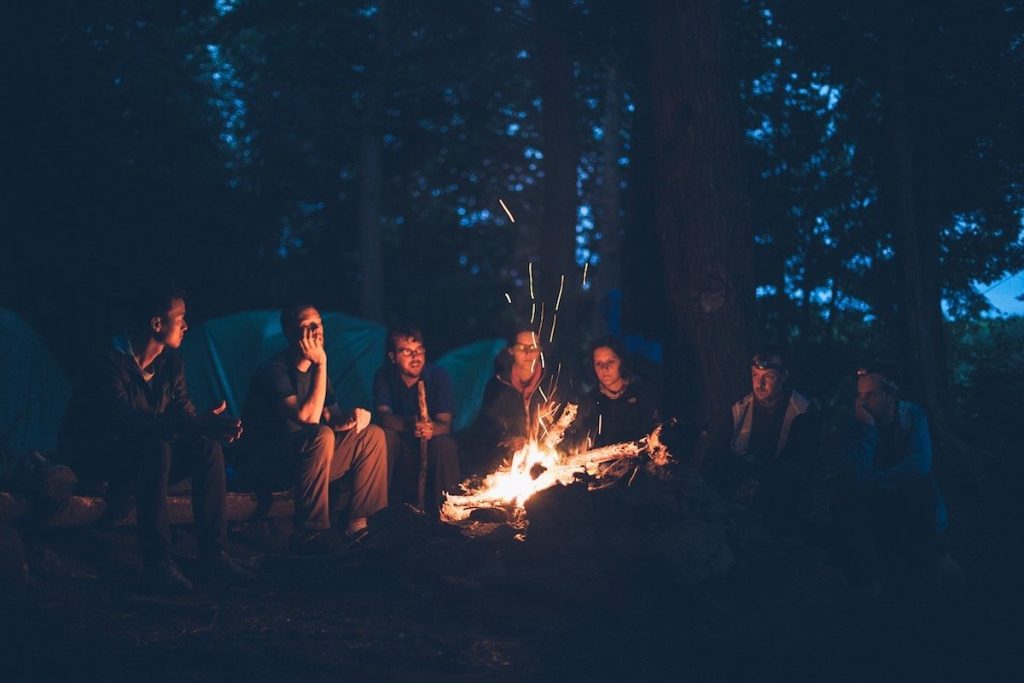
Photo by Pexels from Pixabay
Free camping isn’t exactly “free,” which is something most people don’t come to realize.
RV campgrounds, national parks, and trailer parks all need to be cleaned and maintained. Some parks also hire rangers and crew to keep the place safe and clean. All these maintenance, improvements, and security don’t come for free. The very reason why we get to enjoy many campsites for free is that taxpayers and local governments support them. Many parks and campgrounds also get funds from donations.
Given that free campsites depend on subsidy, they also depend on the social responsibility of campers. Lack of information and irresponsibility are ongoing concerns for a lot of free campsites. Many of these sites have suffered from littering, destruction, threats to wildlife, unauthorized campfires, and others.
It all boils down to the general public’s conscious effort to help maintain camping sites. They tend to overlook that while these sites are free, they’re not free of things that put them at risk.
What To Know About Your Free Campsite?
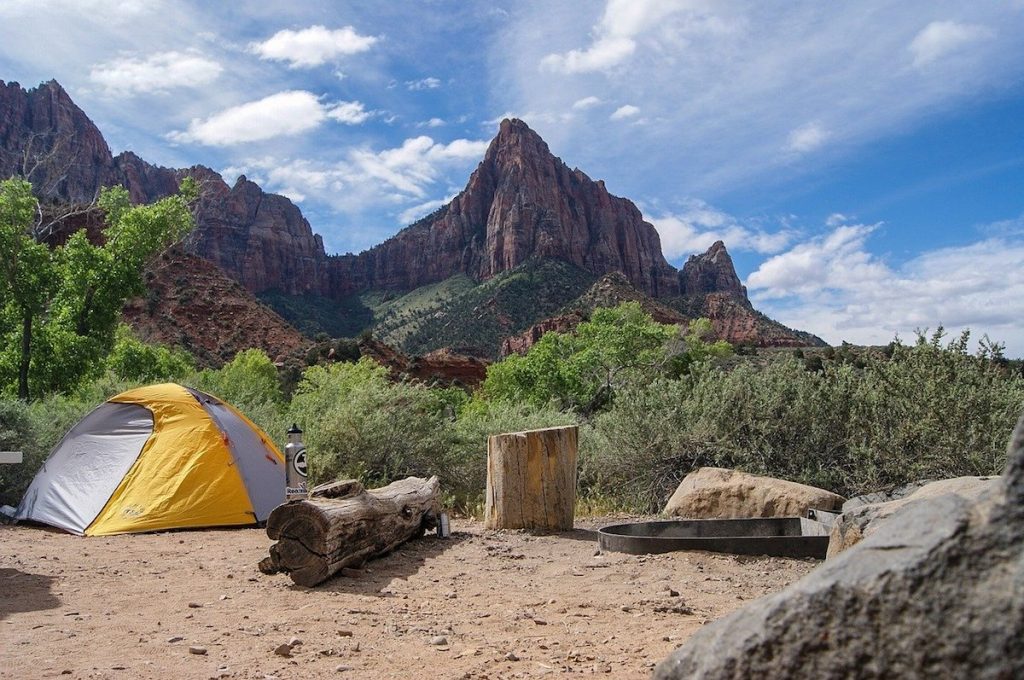
Photo by Free-Photos from Pixabay
Free campgrounds come in different shapes and sizes. To make sure the campsite matches your taste, style, and needs, do research first. This avoids disappointment and sets your expectations once you get there.
Here are a few helpful things to know about your free campsite before heading there.
- Is it suitable for tent camping or RV camping? The last thing you want is to arrive at a free camping spot where your RV is not allowed. The same goes for arriving at a campsite where the terrains are not flat enough to pitch a tent. It’s best to research the campground first and determine if the conditions suit your camping style.
- Is there potable water? It may or may not be a deciding factor, but you should at least know if you need to bring water. Many gorgeous free campsites are in rural areas where water options are not readily available. You can do away with other amenities, but having potable water is non-negotiable.
- What amenities are available? It’s good to know if there are toilets or fire rings nearby. This way, you can plan accordingly. Knowing the available amenities also help manage your expectations, especially if you’re camping with kids. Some free camping sites only offer its vast lands and fresh air.
Other Free Camping Site Concerns
While these may not be pressing concerns, it helps to answer these issues to help you plan your camping trip better.
- Are there animals nearby? Some campgrounds are home to bears, coyotes, and other wild animals. Find out the wildlife you need to be aware of in your chosen campsite. If bears frequent the campground, you need to pack your food and trash well.
- How do you get there? Do you have to hike to reach the campsite? Or can you drive up to the site conveniently? It’s important to know these details so that you can prepare for them. If the site requires you to hike, keep this in mind while packing. Longer hikes to the camping grounds should alert you to pack lighter.
- Are there any rules? It may be free, but it doesn’t mean you can do anything you want on these campsites. Not all free camping sites allow all sorts of camping activities, such as bonfires. It’s best to check if you need to secure a fire permit first before lighting a fire. Some campgrounds also have ground rules, such as the maximum number of stays or the designated areas to pitch tents.
- What type of campers go there? Some free camping sites have been favorites of certain groups of campers. Find out if the campsite is family-friendly if you’re traveling with your kids. This way, you can move on to other options if the campground doesn’t seem suitable for children.
What Are The Responsibilities For Free Camping?
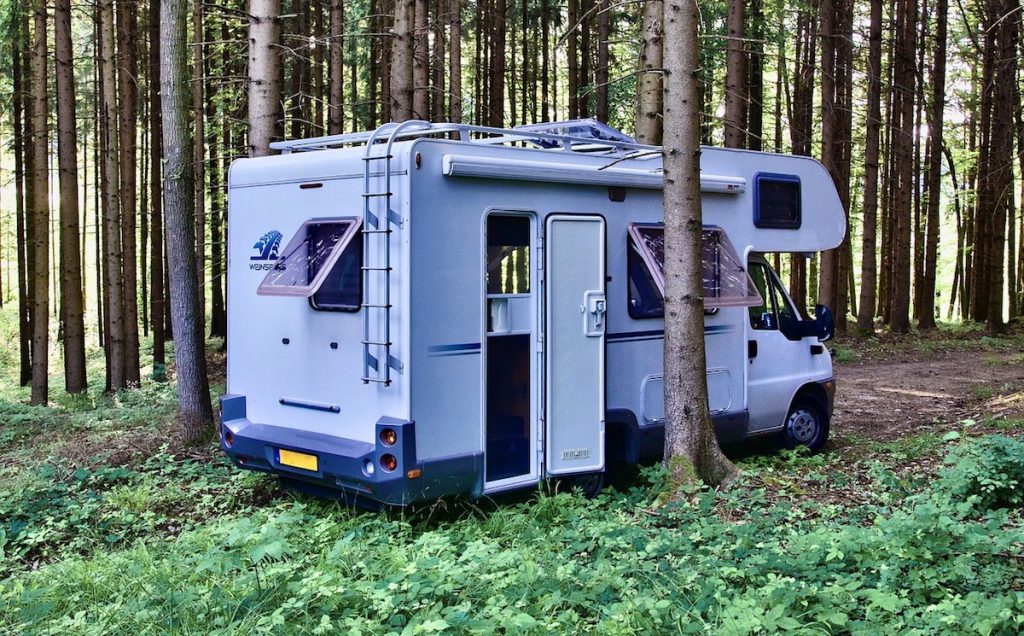
Photo by MemoryCatcher from Pixabay
Most free camping sites do not have elaborate rules and restrictions, but campers are expected to be responsible enough to clean up after themselves. This not just helps maintain the campgrounds but ensures their availability in the future.
- Leave no trace: This principle can be applied to any outdoor recreation, but it especially applies to free camping. This simply means packing everything you’ve brought with you, even your trash. If by any chance your camping chair broke, that’s not an excuse to leave it there. Leave the campground how you found it when you got there.
- Travel and camp only in suitable places: Many local farms allow free camping, but this doesn’t mean you can camp on vegetation. Pick durable surfaces and areas where you won’t cause inconvenience.
- Properly dispose of waste: If there are no trash bins or RV dump stations, you have to pack your trash with you. These include food scraps and other trash. In some remote areas where there are no toilets, check with the campsite on how you can properly dispose of human waste.
- Respect wildlife: Some campsites are home to wildlife. Do your part and respect these animals by not hurting them and disturbing their natural habitat.
- Help maintain it: It’s highly encouraged that campers help maintain free camping sites. This means packing any additional trash you find, whether they’re yours or not. How wonderful would it be to leave a campsite better than you found it?
- Be considerate: It’s highly likely that there will be other campers with you on a free campsite. Still, be respectful and considerate, so everyone around you gets to have a good time. Don’t pitch your tents too close to others. At night, you should also keep your voices and music at a low volume.
Non-Traditional Free Camping Spots
Aside from Walmart and other big store parking lots, here are non-traditional spots where you can camp for free:
- Casinos: Many casinos allow free overnight RV, van, and trailer camping. However, keep your activities within your vehicle and avoid elaborate setups. Check out CasinoCamper.com for more details.
- Truck stops: These stops allow RV, trailer, and van overnight camping. As a bonus, there are convenient stores around truck stops where you can grab some food and fuel.
- Rest stops: There are many recreational stops along U.S. interstate highways that allow vehicles to pull over and rest. For a spontaneous and free overnight camping, you can head over to the nearest rest stop. However, rules differ for every state, so it’s best to check first.
- Work camping: This growing trend allows you to camp for free while you work. There are organizations, recreation sites, and campgrounds that offer this with varying rules. But in essence, they will allow you to camp for free in exchange for your work. It can either be maintenance, landscaping, or a desk job. Some also provide food and other amenities during your stay.
Pitch A Tent For Free!
Camping doesn’t always have to cost you a lot. It just needs to be fun and memorable. While there are many paid campgrounds available, free camping can also be a great idea. With numerous national parks, forests, and private properties, camping for free in the U.S. is easy.
Free camping may mean fewer to no amenities, as well as limited options for activities. However, this doesn’t mean it will be less fun. With careful planning and preparation, it can be one of the best options for a spontaneous weekend trip. Some of the best things in life indeed are free!

